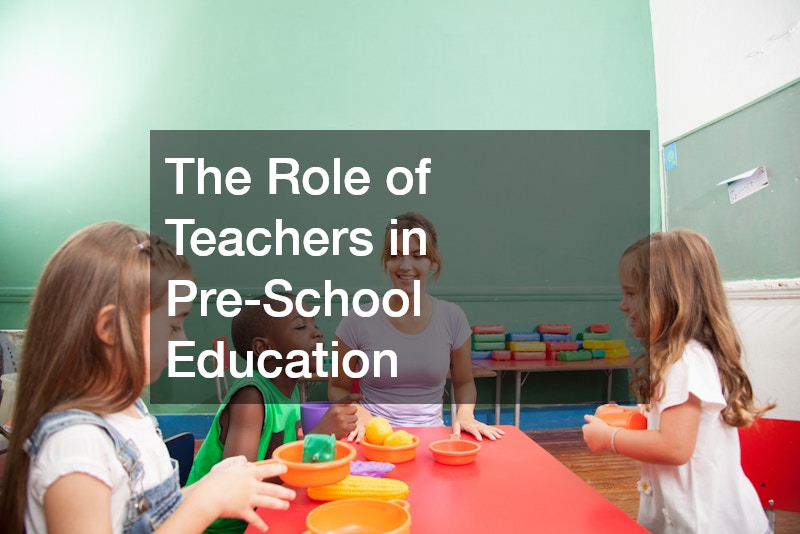Preschools have evolved significantly, offering diverse educational philosophies and approaches. As parents search for the right fit for their children, understanding the dynamics of contemporary preschools becomes essential. This article explores some of the most pressing questions parents have today regarding pre-school education.
Different Educational Philosophies
Montessori vs. Traditional Approaches
The Montessori method emphasizes individual learning, allowing children to explore at their own pace in a structured environment. In contrast, traditional approaches often follow a set curriculum with teacher-led instructions, aiming to ensure all students reach the same benchmarks at similar times.
While Montessori classrooms are usually characterized by mixed-age groups and self-directed activities, traditional pre schools may have more structured schedules and teacher-led lessons.
Parents often choose Montessori for its focus on fostering independence and critical thinking in children. The structured environment of traditional schools, however, can provide children with predictability and routine, which some parents find reassuring. Each method has its proponents and critics, creating a crucial decision point for parents considering their child’s learning style and educational goals.
Studies have shown that Montessori students can develop better social skills and academic achievement over time. In a world where education needs are constantly evolving, the traditional approach may sometimes be viewed as inflexible. Parents should weigh the outcomes and aspirations they have for their children when choosing between these distinct educational pathways.
Emerging Trends and Their Impact
New educational philosophies such as Reggio Emilia and Waldorf have been gaining traction for their child-centered ethos and holistic learning approaches. The Reggio Emilia approach emphasizes the role of the environment as a “third teacher” and encourages a collaborative learning process. Meanwhile, Waldorf education focuses on imagination in learning and integrating the arts and practical learning activities.
Reggio Emilia’s adaptability allows curricula to be shaped by children’s interests, making learning highly engaging and personalized. This adaptability can be particularly beneficial in nurturing creativity and critical thinking skills in young learners. Waldorf’s emphasis on rhythm, beauty, and artistic expression can equally foster a well-rounded development and instill a lifelong love for learning.
Each of these emerging trends addresses key areas of child development, such as emotional and social skills. As pre-schools become more diverse in their offerings, parents have the opportunity to choose programs that best fit their educational values and expectations. Ultimately, these trends highlight the importance of a learning environment that respects individual differences and promotes holistic growth.
The Importance of Curriculum in Preschool
Core Elements of a Strong Curriculum
An effective pre-school curriculum strikes a balance between academics and play, promoting both cognitive and social development. Core elements often include activities that foster language, math, physical, and socio-emotional skills. The curriculum is designed to be flexible enough to allow children to explore their interests while meeting developmental goals.
Through play-based learning, children can develop essential lifelong skills such as problem-solving, cooperation, and resilience. Academic components, including early literacy and numeracy, lay a crucial foundation for future learning. A thoughtfully constructed curriculum ensures that children are engaged in meaningful activities that promote comprehensive growth.
The integration of cross-disciplinary themes helps in cultivating a well-rounded understanding of the world. In today’s dynamic educational landscape, parents are increasingly attentive to how well a curriculum prepares their children for future academic challenges. Evaluating the curriculum’s ability to nurture a child’s natural curiosity may be integral to the decision-making process.
Adapting Curriculum for Diverse Learners
Pre-schools often adapt their curriculum to accommodate diverse learners, including those with special needs. Adaptation practices may involve integrating varied teaching methods, modifying materials, and tailoring activities to support individualized learning. Such inclusive strategies aim to ensure all children can access and benefit from the curriculum.
For children with special needs, effective adaptations may include utilizing sensory materials, implementing routine-based interventions, and engaging in one-on-one support. These adaptive strategies can enhance a child’s learning experience and foster personal success. By providing personalized learning paths, pre-schools can better serve diverse populations and ensure inclusive education for all students.
Incorporating family and community involvement further enriches the learning experience for diverse learners. The collaboration among educators, families, and therapists plays a critical role in developing effective plans that address a child’s unique needs. As a result, diverse learners can thrive in environments that respect their individuality and promote equitable opportunities.
The Role of Teachers in Preschool Education
Quality education and child safety in pre-schools depend significantly on the qualifications and training of the teaching staff. Teachers typically undergo specialized training in early childhood education, child development, and behavioral management. Continuous professional development ensures educators are proficient in the latest pedagogical strategies and safety protocols.
Having appropriately trained educators can enhance the learning environment, leading to better educational outcomes for children. Effective teacher training programs emphasize not only academic instruction but also social-emotional support and classroom management. Moreover, certifications and state licensure ensure that teachers meet specific industry standards for quality care and education.
Challenges like varying state standards and funding can sometimes impact access to high-quality preschool programs. Nevertheless, ensuring teachers are well-equipped can dramatically improve learning experiences and outcomes. As parents evaluate preschool options, teacher qualifications often become a pivotal factor in their decision-making process.
Today’s preschools offer various approaches and philosophies tailored to different learning styles and needs. By understanding these elements, parents can make informed decisions that best align with their values and their children’s development. The choice of pre-school education plays a significant role in laying the foundation for a child’s lifelong learning journey.

